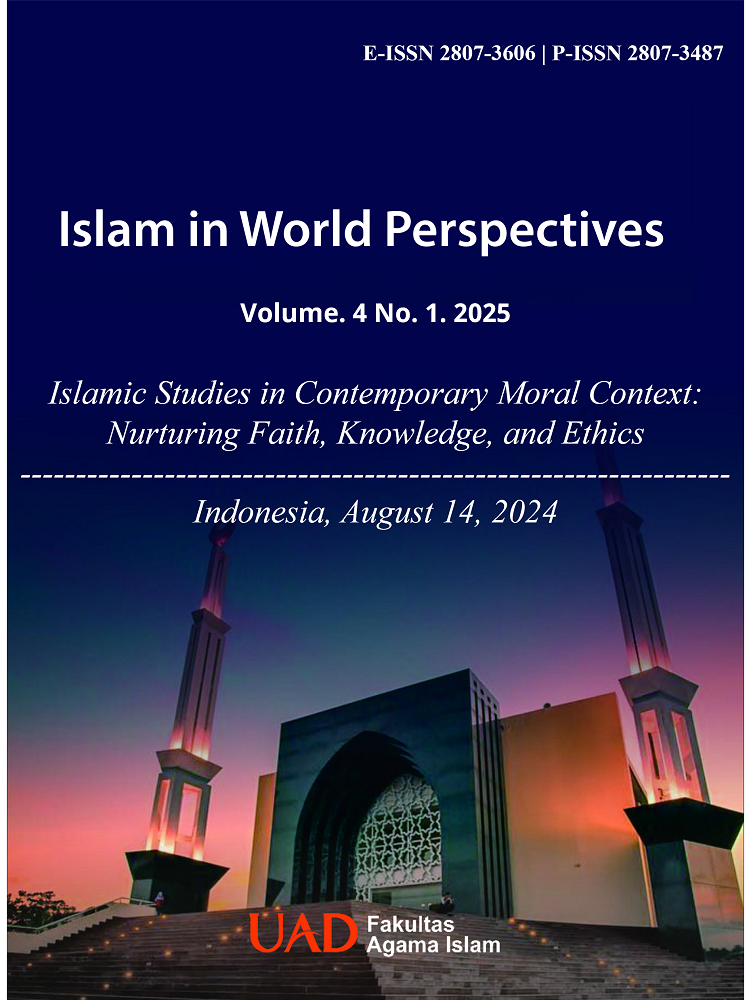Aqidah akhlak learning method in the formation of student character at Mts Al-Jihad Boleng, Ile Boleng District, East Flores Regency
Abstract
Learning moral beliefs is a process of change in behavior and knowledge through interactions between teachers and students in the classroom. This process involves moral aqidah material that teaches about faith, Islamic issues, as well as obedience and obedience in carrying out Islamic law. The aim is to form a person with noble character, by emphasizing not only the intellectual aspect, but also the moral aspect, thereby forming an individual with character. This research aims to determine the moral aqidah learning methods used by moral aqidah teachers in forming student character at Al-Jihad Boleng Private MTs, Ile Boleng District, East Flores Regency. This research is descriptive qualitative research, the data sources used are primary data and secondary data with data collection techniques through observation, interviews and documentation. Data analysis in this research was done by data reduction, data presentation and conclusions. Based on the results of this research, it is clear that: 1) The implementation of moral aqidah learning at Al-Jihad Boleng Private MTs consists of three implementation activities, namely initial activities, core activities and final activities. 2) The learning method applied to learning moral aqidah at Al-Jihad Boleng Private MTs uses four methods, namely the lecture method, discussion method, assignment method and question and answer method. 3) Supporting factors in implementing learning consist of educator factors, facilities and infrastructure factors, while inhibiting factors in implementing learning are method factors, student factors, parent factors, environmental factors and student interactions.
Downloads
Published
Issue
Section
License
Copyright (c) 2024 Salim Ibrahim Bin Kadim, Arif Rahman

This work is licensed under a Creative Commons Attribution-ShareAlike 4.0 International License.
Authors who publish with Islam in world perspectives agree to the following terms:
- Authors retain copyright and grant the journal right of first publication with the work simultaneously licensed under a Creative Commons Attribution License (CC BY-SA 4.0) that allows others to share the work with an acknowledgment of the work's authorship and initial publication in this journal.
- Authors are able to enter into separate, additional contractual arrangements for the non-exclusive distribution of the journal's published version of the work (e.g., post it to an institutional repository or publish it in a book), with an acknowledgment of its initial publication in this journal.
- Authors are permitted and encouraged to post their work online (e.g., in institutional repositories or on their website) prior to and during the submission process, as it can lead to productive exchanges, as well as earlier and greater citation of published work.

This work is licensed under a Creative Commons Attribution-ShareAlike 4.0 International License.



